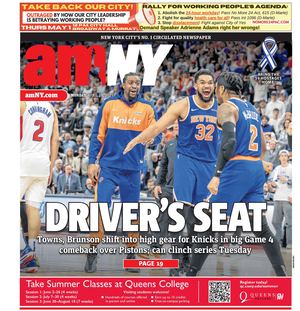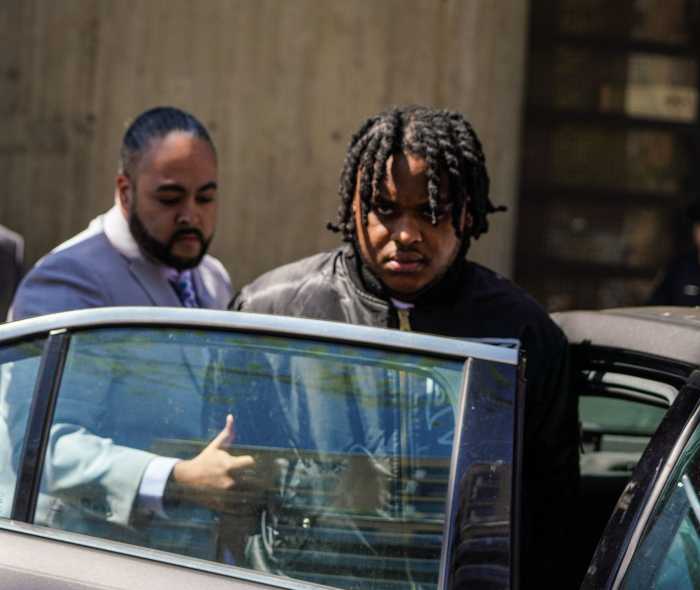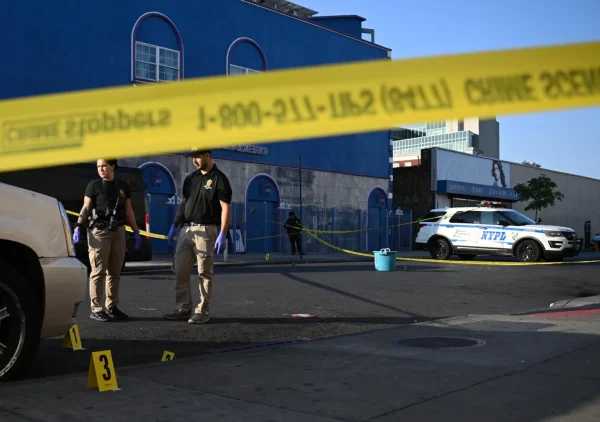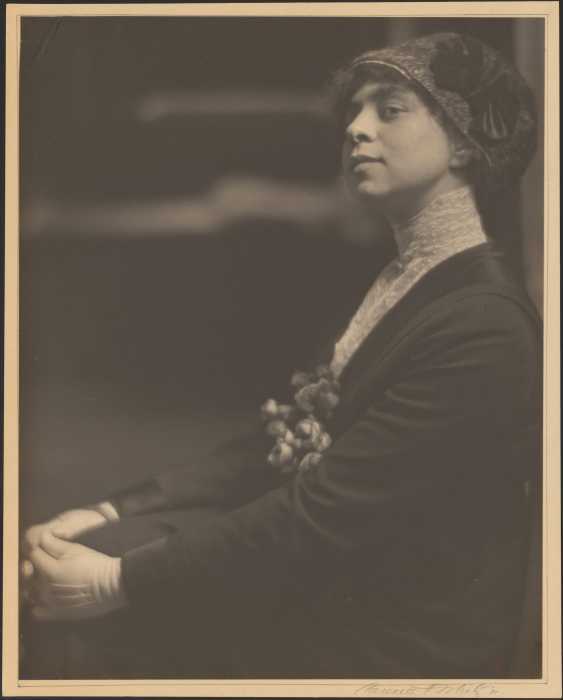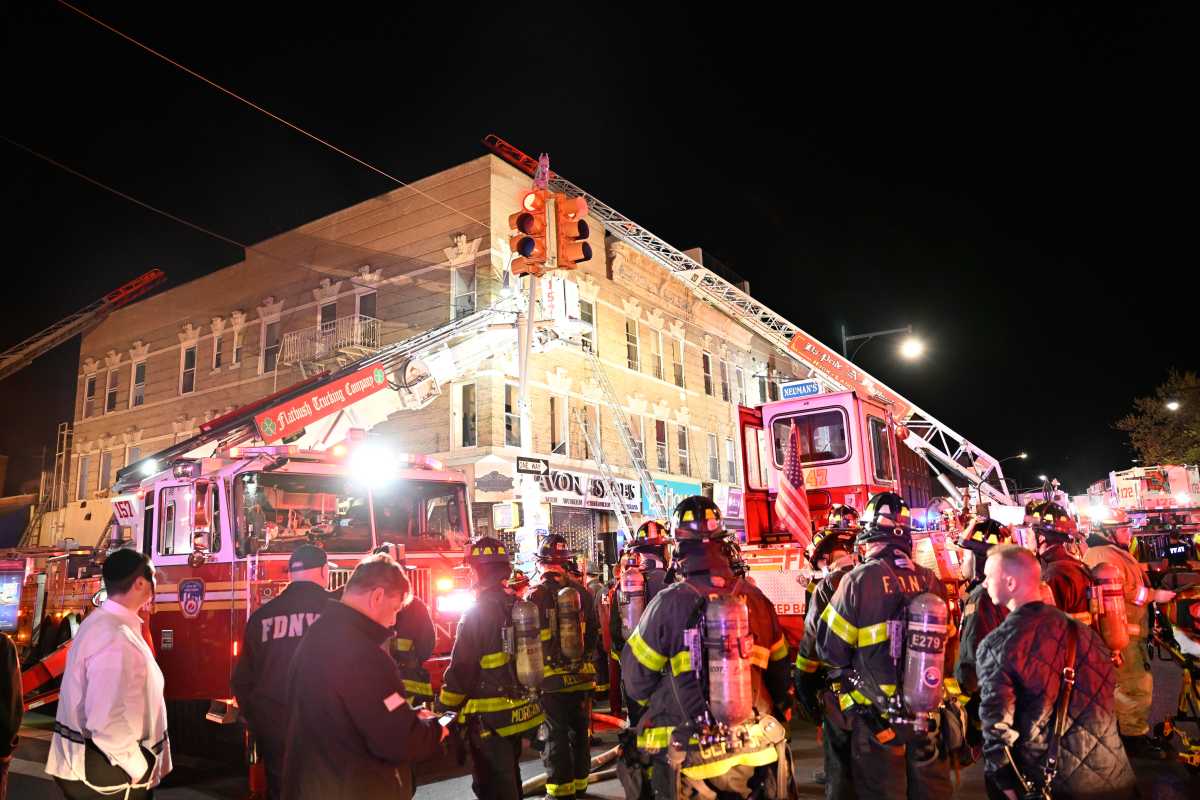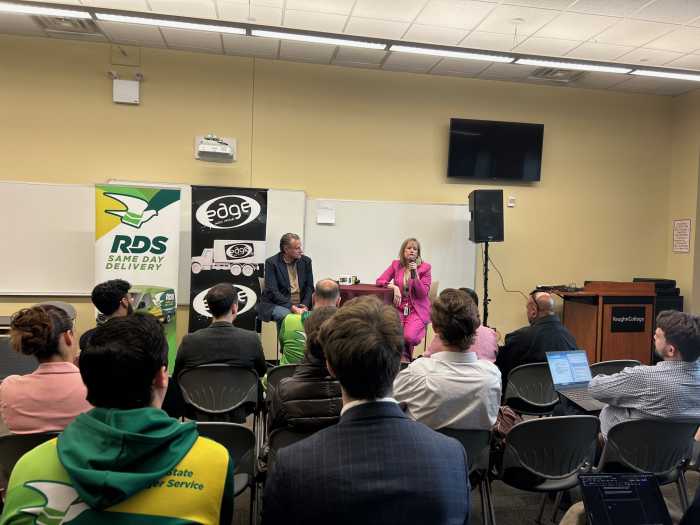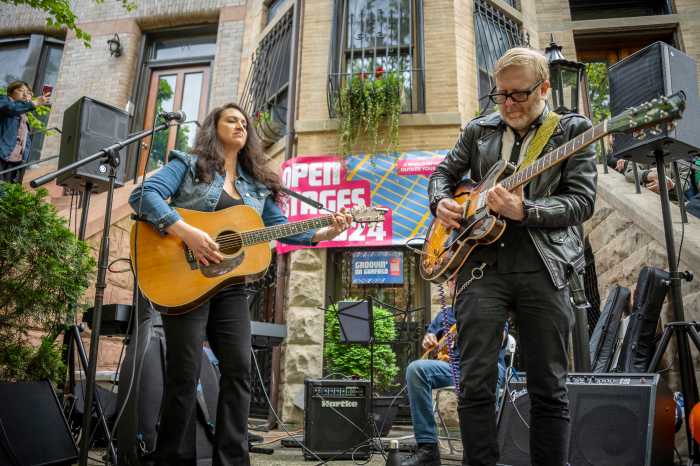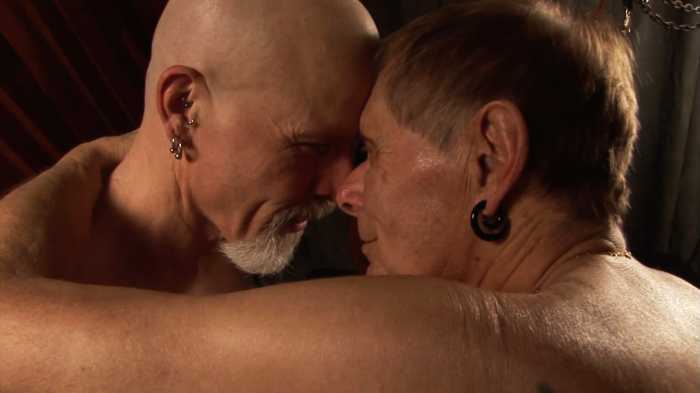
A technology hub planned for 14th Street, now dubbed the Union Square Tech Training Center, was called into question by community advocates who fear the 21-story development will usher in an era of hyper-development in the neighborhood, at a public hearing hosted by the city council’s Subcommittee on Zoning and Franchises Tuesday.
The building, which is the site of a now-shuttered P.C. Richard and Son between Third and Fourth avenues, was proposed by the Bill de Blasio administration in partnership with a private developer, RAL Companies. The building will house retail stores, office spaces for startups, digital skills training centers, an event space to hold community events and technology conferences, and offices for Civic Hall, a nonprofit that combines technology with social good.
Embarked on by the city Economic Development Corporation, the project will focus on community needs and offer public benefits, according to Jillian McLaughlin, assistant vice president at NYC Economic Development Corporation.
For example, the digital skills training centers will offer scholarships, 25 percent of office space will be reserved for first-time entrepreneurs, and lease terms will be kept short so as to accommodate retailers’ needs, according to Spencer Levine, senior project manager at RAL Companies.
“We would like to be good neighbors and we would like to be part of the community,” Levine said, adding that developers made “a lot of changes” to the original project to accommodate feedback received from the community. After listening to recommendations listed by Community Board 3, Levine said, for example, developers are committed to no amplified sound on the roof past 10 p.m.
Raising the issue of equitable education, Councilwoman Carlina Rivera, in whose district the tech hub will be constructed, voiced her concerns about accessible digital skills training for her constituents.
“My concern is that I’m not going to see people from where I grew up on Avenue C and Avenue B and Fifth Street, that they’re not going to make it into the digital skills training center, that it’s going to look a lot of the same, that it’s going to look like the tech alley,” Rivera said, to appreciation from the crowd. “I want to make sure that it’s going to be reflective of the city we live in.”
Another issue raised during the hearing, this time by longtime opponents Greenwich Village Society for Historical Preservation, was that the center would lead to the construction of more high-rise buildings, transforming their neighborhoods into hyper-commercialized hubs. Members of GVHSP, holding signs that read “Why won’t Mayor de Blasio work with neighborhoods?” and “Tech hub must include neighborhood protections,” urged city council members to vote no on the tech hub until protections on zoning regulations in adjoining neighborhoods are imposed.
On Tuesday, Sam Moskowitz of GVHSP recommended limiting the height of new buildings to 145 feet and adding affordable housing provisions.
Acknowledging the group’s concerns, Rivera urged the NYCEDC and the mayor’s office to work with residents to allay their fears of hyper-development.
“Union Square is an attractive, popular neighborhood because of the people who live there and have invested in it financially and emotionally,” Rivera said, to silent applause from the crowd.
The city has said the zoning changes that the village society is calling for are “unrelated” to the tech center proposal.
“The Union Square Tech Hub stands on its own merits,” Melissa Grace, deputy press secretary, said in February. “It is disappointing some groups would use the project to change unrelated zoning blocks away.”
While most neighborhood residents expressed concerns about the tech hub, some community advocates made their appreciation known for increased technological resources that the project would make available.
In conjunction with expanding the city’s tech sector, “the hub will support job training, sustainable employment opportunities and access for New Yorkers of all backgrounds to the technology industry,” according to an emailed statement from Jessica Walker, president and CEO of the Manhattan Chamber of Commerce. “Its location on 14th Street will bring it into close proximity to tech companies, disruptive startups and the key businesses, and will help catalyze economic growth and good-paying jobs in the Union Square area.”
Members of The Alfred E. Smith Houses Resident Association, a NYCHA development in lower Manhattan, also made an appearance at the hearing, detailing the long commute times its residents face while trying to acquire IT training.
“This hub will provide access for some within walking distance and others one bus and/or train ride away maybe the most 30 minutes of travel versus hours.”
For the proposal, developers are requesting rezoning actions regarding the building’s rear yard, height and setback so as to add six additional floors to the building, which is not currently allowed under existing zoning laws. The project is currently approved by Community Board 3, Manhattan Borough President Gale Brewer and the City Planning Commission and is being weighed by city council members.
